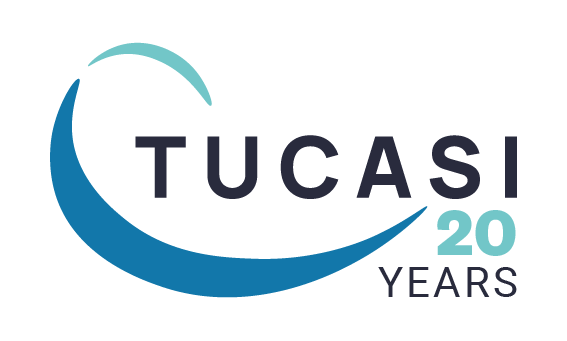School meals are a hot topic in education at the moment. The last year has seen growing calls for the Government to expand Free School Meal eligibility to all children in households on Universal Credit. The Feed the Future Campaign argues that extending eligibility:
“…is an urgent first step towards a long-term goal for the Government to provide universal, comprehensively funded, nutritious school food for all children.”
It is widely acknowledged that having access to sufficient, nutritious food is crucial for children to lead healthy, happy lives and to be able to focus properly and thrive at school.
Rising household food insecurity
In 2022, The Food Standards Agency undertook a new study. specifically looking at UK consumers’ interests, needs and concerns in relation to food. Their report, published in June, found that:
“Food prices in the UK are rising rapidly… Alongside other rising costs, particularly energy. And with growth in real pay lagging behind, this has meant UK consumers are increasingly struggling to afford food.”
The cost of food itself is not the only factor contributing to the problem. Household food insecurity is a consequence of the wider cost-of-living crisis. People often take steps to cut food expenditure first when times are tight. For example, switching to cheaper options, skipping meals or reducing portion sizes.
In September 2022, The Food Foundation found that:
- 4 million children lived in households that had experienced food insecurity in the past month; and
- 54% of households on Universal Credit experienced food insecurity in the past month.
Impact on school meals
- During the Summer of 2022, the Association for Public Service Excellence conducted an online survey, to find out how the cost-of-living crisis was impacting school food. The report shows:
- 97.79% of respondents report an increase in food costs.
- Caterers are considering a range of actions including working with suppliers, passing on the cost increase to pupils, and reducing menu choices.
- Almost half reported a decrease in the number of paid meals being served at their school.
- Over a third saw the quality of packed lunches decline.
- The majority (53.11%) also saw an increase in children arriving at school without eating breakfast.
A number of local authorities have stepped in and pledged to help fund school lunches for more children. However, for most schools, funding for lunches for all their children is, unfortunately, still out of reach.
Help with funding breakfast clubs
On the positive side, breakfast club funding is available from several different sources. This enables schools to help their pupils start the day with a nutritious meal; we have summarised a few:
The Government’s national school breakfast club programme
The national school breakfast club programme provides a 75% subsidy for the food and delivery costs of breakfast clubs (until the end of July 2024).
To qualify:
- Schools in England must have 40% or more pupils in bands A-F of the income deprivation affecting children index (IDACI).
- This includes state-funded primary, secondary and SEND schools. The subsidy is funded by the Department for Education, and food is sourced and delivered to schools by Family Action.
- Participating schools only need to contribute 25% of the cost for food products and delivery.
- All pupils must be offered free breakfasts, under this scheme.
Submit an Expression of Interest here.
Magic Breakfast
Magic Breakfast currently funds healthy breakfasts for over 200,000 children throughout term-time. The charity gives breakfast provision and expert support to over 1000 primary, secondary and SEND schools. Plus Pupil Referral Units in England and Scotland.
To qualify:
- Schools in England must have at least 35% of pupils eligible for Pupil Premium.
- Scottish primary schools must either have at least 55% of pupils in Scottish Index of Multiple Deprivation (SIMD) Deciles 1 to 4 or at least 35% of pupils eligible for Free School Meals.
- Scottish secondary schools must have at least 40% of pupils in SIMD Deciles 1 to 4.
Apply to become a Magic Breakfast school here.
The Greggs Foundation
The Greggs Foundation oversees 840 breakfast clubs, providing a nutritious breakfast to over 52,000 school children each day. Every school is provided with fresh bread from their nearest Greggs shop. Plus a grant to support start-up and ongoing costs.
To qualify:
- Primary schools in England, Wales, Scotland or Northern Ireland must have at least 40% of pupils eligible to claim Free School Meals.
- The breakfast club must be offered for free to all pupils.
- This programme encourages the use of parent volunteers in breakfast clubs, as this helps inactive adults to become work ready, and builds relationships between schools and parents.
Learn more about Greggs Foundation here.
Warburtons
Warburtons bakeries donate baked goods to school breakfast clubs, after schools clubs and holiday hunger projects. Schools could receive a variety of sliced bread products, bagels, fruit loaves, sandwich thins and rolls.
Priority is given to schools that with over 30% of children in receipt of pupil premium funding, and donations are subject to availability.
Request a Warburtons product donation here.
Support for families
Improve attendance at your paid school breakfast club by raising awareness of the support available directly to parents. There are many different government schemes to help parents pay for childcare outside school hours. Approved childcare provision includes breakfast clubs and after school clubs at registered schools and nurseries.
The options for support with childcare payments include:
- Free childcare hours for 2 to 4-year-olds
- Tax-Free Childcare for children up to 11-years-old
- Tax Credits
- Parents eligible for Universal Credit may be able to claim back up to 85% of childcare costs
- Care to Learn for parents under 20-years-old in school or sixth form
- Learner Support for parents in further education
- Childcare Grants for parents in higher education
There government is also piloting a scheme to fund the expansion of wraparound care in 16 Local Authority areas. Make sure to check back on our news page for more information over the coming months.
Help with organising school breakfast clubs
Once a funding source has been established, setting up and sustaining a successful breakfast club may seem like quite a challenge in itself; however, there are all sorts of resources which can help:
Our guides for primary schools and secondary schools on how to set up and sustain successful breakfast clubs outlines some top tips for success.
Healthier breakfast clubs guidance gives great advice and a step-by-step plan on how to run a healthier breakfast club.
Kellogg’s supports breakfast clubs with online resources. They provide ideas and inspiration to keep pupils engaged and entertained at breakfast clubs.
Coordinating clubs can also demand a lot of staff time and effort. However, the right software can make the administration of breakfast and after school cubs easy. Our Extended Day module takes away some of the admin burden, letting staff focus on the success of the club and the positive outcomes for pupils.

Post updated January 2024.


